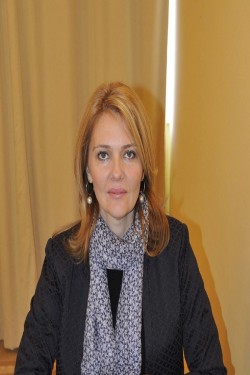Session 4: Two-speed cyber security in the Western Balkans?
(In partnership with Geneva Centre for the Democratic Control of Armed Forces (DCAF))
Discussion Points:
- How do the existing strategic and legal frameworks for cyber security perform in practice: what works, what does not work? What are the experiences from developed countries? What is the situation in the region?
- Why is there such a difference in the development of effective cyber security amongst the countries of the region?
- Which key events, circumstances or actors help to advance cyber security policies?
- What are successful governance models already tested in the region, which show how cyber security policies can be discussed in a transparent manner, and lead to evidence-based regulations?
- Border-limited governments and borderless businesses-how can they work together, can they trust each other?
- How can we make sure that good policy plans are also implemented successfully and including all relevant stakeholders?
Speakers:
Robert Kosla, Lt. Col. (Ret.)‚ Microsoft CEE Area Director, Public Safety and National Security and Defence
Olivera Injac‚ Assistant Professor, University of Donja Gorica, Montenegro
Vladimir Radunović‚ Director of E-Diplomacy and Cybersecurity, DiploFoundation
Nebojša Jokić‚ Head of the CERT Team, Ministry of Internal Affairs, Republic of Serbia
Moderator: Franziska Klopfer‚ Project Coordinator, Geneva Centre for Democratic Control of the Armed Forces (DCAF)
Background:
The Internet affects all segments of a modern society. It is also the major enabler for business and social activism. Every country’s economic and social development will strongly rely on how the digital sphere is developed and governed, how effectively the states and societies manage to engage available resources and build missing capacities.
Digital development and cyber-policy are becoming core social and economic issues, even in transition countries, including those in the Western Balkans (WB) Region. As the field of digital policies is multidisciplinary and rapidly changing, traditional policy-makers don’t have capacities to address the emerging challenges and opportunities on their own. Instead, an environment for a multistakeholder dialogue should be created that can enable inclusive and evidence-based policy-making.
Yet the Internet also brings the risk of cybercrime, censorship, surveillance, and other misuses. Developmental impact of the Internet is inseparable from the existence of end-users’ (citizens, consumers, businesses) trust in the existence of safe and secure environment in cyber domain. Thus, ensuring effective and accountable security in the cyber space is crucial for maximising the developmental role of Internet.
Most of the countries in the region are in the process of building strategic frameworks and institutional mechanisms for cyber security, and hope they will be advancing their socio-economic development through efficient use of Internet related technologies. The traditional and still predominant governance models in the region do not encourage inclusive and transparent policy making, particularly in the areas seen as exclusive prerogative of the state, such as those providing security and safety to the citizens. It becomes even more complicated when these policies rely on the transnational and mostly privately owned infrastructure of the Internet.
Recent research has shown that the development of effective cybersecurity policy frameworks in Western Balkan countries advances at different paces; some countries are starting to align their regulatory framework with European Union standards, others are alarmingly slow in revising regulation. All have difficulties with the implementation of regulations. The benefits of learning from practical examples by exchanging experiences in the countries of the region and beyond are therefore evident.
This panel will compare and contrast various national experiences in building national cyber security policies in the WB region and beyond, thus highlighting the potential for increasing national capacities through cooperation, exchange of best practices and lessons learned.
—————————————————————-
Previous BSF Panels and Sessions on the topic of cyber security:
2012 – Session 3: Cyber War and Cyber Crime: Responding to the Governance Challenges





